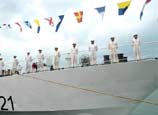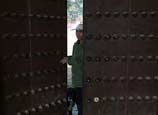
TEHRAN, April 4 (Xinhua) -- Iran's chief nuclear negotiator said Thursday that in the forthcoming nuclear talks in Kazakhstan' s Almaty must recognize Iran's "right to uranium enrichment."
Saeed Jalili said Friday's talks can simply open the way to resolve the Islamic republic's nuclear issue by "recognizing Iran' s nuclear rights, especially the rights of enriching uranium."
This is the right which has been safeguarded by the Nuclear Non- Proliferation Treaty directives, he said.
He expressed the hope that negotiations will end in results, saying the West faces another "test" regarding Iran's nuclear program -- to deny the nation's right or to recognize it.
Meanwhile, Iran's deputy nuclear negotiator Ali Baqeri said the Islamic republic is going to enter the Almaty nuclear talks with " clear proposals," Press TV reported.
"Iran's proposals would be clear and ground-breaking," Baqeri was quoted as saying without elaboration.
The Iranian official stressed that any proposal in the talks should take into consideration the recognition of Iran's right to the "peaceful" use of nuclear program.
Iranian Foreign Ministry spokesman Ramin Mehmanparast told semi- official Fars news agency Thursday that "The main trend of the talks should be directed in a way to thoroughly recognize Iran's peaceful nuclear rights."
Iran will do every attempt to encourage "logical dialogues" so that the recognition of Iran's nuclear rights could be secured, said Mehmanparast.
The more "logical and proportional to our nation's rights" the approach of the P5+1 group (Britain, China, France, Russia, the United States and Germany) will be, the more feasible is the likelihood of agreements in the talks," he said.
On Wednesday, Mehmanparast said he was hopeful about the results of the upcoming talks with the P5+1 group, saying the talks "are likely to be conducted in a reasonable atmosphere which would help both sides reach a final solution," according to Fars.
On the other side, the member states of the P5+1 group urged Iran to respond to a revised proposal by the world powers that asks Tehran to suspend its enrichment of uranium and disable the underground Fordow facility in exchange for limited sanction relief.
Iran must respond to proposals offered by world powers if this week's nuclear talks were to succeed, Catherine Ashton, European Union high representative for foreign affairs and security policy, said Wednesday.
"I remain always cautiously optimistic. But I am also very clear that it is very important that we do get a response (from Iran)," Ashton told reporters in Turkey's capital Ankara.
Besides, Russian Deputy Foreign Minister Igor Morgulov said Wednesday that Moscow hopes proposals made by world mediators to Iran over its nuclear program could lay the foundation for negotiations on solving the problem.
Morgulov told the Interfax news agency that Russia is "closely coordinating" with the P5+1 group on Iran's nuclear issue.
Moscow expected "an updated package of demands" could lay the foundation for "consistent progress" in the nuclear talks, Morgulov said.
Also on Wednesday, a Chinese Foreign Ministry spokesman urged all concerned parties to take practical action to build mutual trust during the upcoming Iranian nuclear talks in Kazakhstan.
Hong Lei said talks between Iran and the P5+1 group held in Almaty in late February represented the first step in starting substantive negotiations.
"China hopes all concerned parties will, on the basis of the two previous talks, actively seek a consensus and fully accommodate each other's concerns," Hong said.
















 Snails that are as fat as geese
Snails that are as fat as geese


![]()
